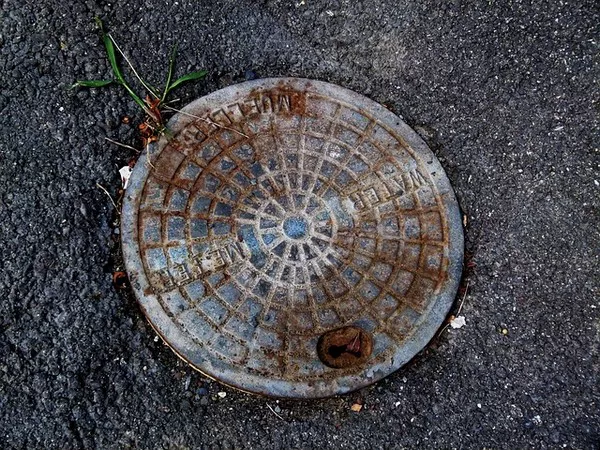A bathroom is meant to be a sanctuary of cleanliness and comfort, but when an unpleasant septic smell invades the space, it can quickly become a source of distress. Understanding the root causes of septic odors in bathrooms is essential to restoring a pleasant environment and ensuring the well-being of your household. In this comprehensive guide, we explore the multifaceted reasons behind septic smells in bathrooms, shedding light on plumbing intricacies, septic system malfunctions, and effective solutions to tackle the issue head-on.
1. P-Trap Problems:
The P-trap, a vital component beneath sinks and drains, serves as a barrier against sewer gases entering your home. However, if water in the P-trap evaporates due to infrequent use or leaks, it can pave the way for those unpleasant odors to emerge.
Infrequent Use: When a sink or shower isn’t used often, the water in the P-trap can evaporate, creating an opening for sewer gases to infiltrate your bathroom.
Slow Leaks: Even minor leaks in the P-trap can gradually drain away the water, rendering it ineffective in blocking sewer odors.
Solutions: Running water regularly in sinks and showers can help maintain the water level in the P-trap. If leaks are suspected, it’s advisable to enlist the expertise of a professional plumber to inspect and repair the P-trap.
2. Blocked Ventilation System:
Ventilation pipes are designed to allow air to escape from your plumbing system, preventing pressure buildup and ensuring proper drainage. If these vents become clogged or obstructed, sewer gases may be forced back into your bathroom.
Blockages and Debris: Debris, bird nests, or leaves can accumulate in the roof vent, obstructing the flow of air and leading to septic odors.
Backflow Pressure: A blocked ventilation system can create pressure imbalances, causing sewer gases to push their way into your bathroom.
Solutions: Regularly inspect and clear roof vents to prevent blockages. In case of doubt or if blockages persist, consulting a professional plumber is recommended.
3. Damaged Sewer Lines:
Cracked or broken sewer lines can release foul odors into your bathroom, indicating more significant issues with waste containment and processing.
Cracks and Deterioration: Aging sewer lines can develop cracks or deteriorate over time, allowing odorous gases to escape.
Leakage and Percolation: Leaks in sewer lines can lead to the seepage of wastewater, carrying odors with it and impacting your bathroom environment.
Solutions: If you suspect damaged sewer lines, it’s crucial to seek the expertise of a professional plumber. A thorough inspection and timely repairs can prevent further issues.
4. Faulty Toilet Seal:
The wax ring seal beneath your toilet prevents leakage and the escape of sewer gases. A damaged or incorrectly installed wax ring can contribute to septic odors.
Wax Ring Deterioration: Over time, the wax ring can degrade, allowing odors to seep through gaps between the toilet and the floor.
Poor Installation: If the wax ring is not installed properly or is misaligned, it may fail to create an airtight seal.
Solutions: Replacing a faulty wax ring with the help of a professional plumber is recommended. Ensuring a secure installation and proper seal is crucial for odor prevention.
5. Septic System Malfunctions:
A malfunctioning septic system can lead to the release of unpleasant odors, signaling larger issues with waste management and processing.
Tank Overload: When the septic tank reaches its capacity, it can lead to inadequate waste processing and the escape of sewage gases.
Leakages and Drainfield Problems: Leaks in the septic tank or issues with the drainfield can contribute to the release of odors into your bathroom.
Solutions: Regular septic tank maintenance and inspections are essential to preventing system malfunctions. Timely pumping and repairs can mitigate the risk of odor-related problems.
6. Dry Drains and Infrequent Use:
Drains that are seldom used can dry out over time, allowing sewer gases to permeate your bathroom through the pipes.
Evaporation of Water Seals: When water seals in infrequently used drains evaporate, sewer gases can flow freely into your bathroom.
Shower and Floor Drains: Showers and floor drains in guest bathrooms or basements are particularly prone to evaporation-related odor issues.
Solutions: Running water periodically in all drains, especially in less frequently used bathrooms, can maintain water seals and prevent the escape of odors. Using drain covers can also help prevent water evaporation.
Conclusion:
A septic smell in your bathroom is not just a nuisance; it’s a signal that something is amiss in your plumbing or septic system. By delving into the various causes – from P-trap problems to septic system malfunctions – you can take informed steps to tackle the issue effectively. Regular maintenance, swift repairs, and seeking professional assistance when needed will ensure a clean, hygienic, and odor-free bathroom environment, restoring comfort and tranquility to your home.

